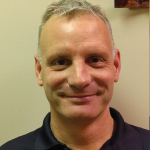
© Unitone Vector / shutterstock.com
Between seeing patients in clinic, performing surgeries, doing hospital rounds, and trying to have a life outside of medicine, physicians have some of the busiest lives. But many also make time to advocate for a variety of causes.
Explore This Issue
August 2020Volunteering can provide an escape hatch from the pressures of doctors’ regular jobs, according a study published in the Permanente Journal: A peer-reviewed journal of medical science, social science in medicine, and medical humanities. (Physicians’ perceptions of volunteer service at safety-net clinics. Perm J. 2017;21:16-003;).
Despite challenges like a lack of time, physicians often become advocates for other causes because the work they do isn’t just meaningful but sometimes crucial to the lives of others.
These three physicians shared with ENTtoday the advocacy work they do that inspires them. Hopefully, it will inspire you, too.
Legislation for Doctors and Patients
 David Boisoneau, MD
David Boisoneau, MD
Private Practice Otolaryngologist in Waterford, Conn.
Chair of the Legislative Affairs Committee, American Academy of Otolaryngology-Head and Neck Surgery
Fifteen years ago, I became involved with the legislative affairs committee at the AAO-HNS when some of the leaders of our Connecticut State Society, including some of the doctors who trained me, were looking for younger otolaryngologists practicing in the state to get involved. They knew I was passionate and enjoyed engaging with others, so they basically roped me into being part of their executive committee. That began as a secretary position for two years, and then I spent two years as a treasurer and two years as a president elect. I became more involved nationally, attending the board of governors’ meetings in Alexandria and then the national meetings. All the while, I networked and learned how advocacy works on a larger scale.
I work closely with the advocacy staff at the AAO-HNS on grassroots legislation. The staff will come to me to try to amplify legislative messages as quickly as possible; we have a lot of avenues to get information out to our members. Maura Farrell, senior director of advocacy at the AAO-HNS, is our lobbyist in Washington, D.C., and she, along with our academy CEO Dr. Jim Denney, meets with legislators on an ongoing basis in D.C. to advance our advocacy efforts.
Before COVID-19 showed up, we were working on hearing aid and audiology legislation on Capitol Hill. There are a couple of bills in the House and the Senate that seek to expand the ability of an audiologist to examine and dispense hearing aids to the Medicare population without an otolaryngologist’s referral. Since there are many hearing disorders that audiologists may miss or aren’t qualified to treat, there are a lot of problems with this. As an academy of ear, nose, and throat doctors, obviously, we oppose any legislation that would bypass a proper ear exam by a licensed physician.
We also work on a lot of legislation that isn’t specific to otolaryngology, like surprise billing. These are complicated billing situations where a patient might see an out-of-network doctor or go to an out-of-network emergency room for an urgent problem and get a bill they weren’t expecting. We are trying to advocate for our patients as well as for our doctors when the burden then falls back on them to collect this money from the patient.